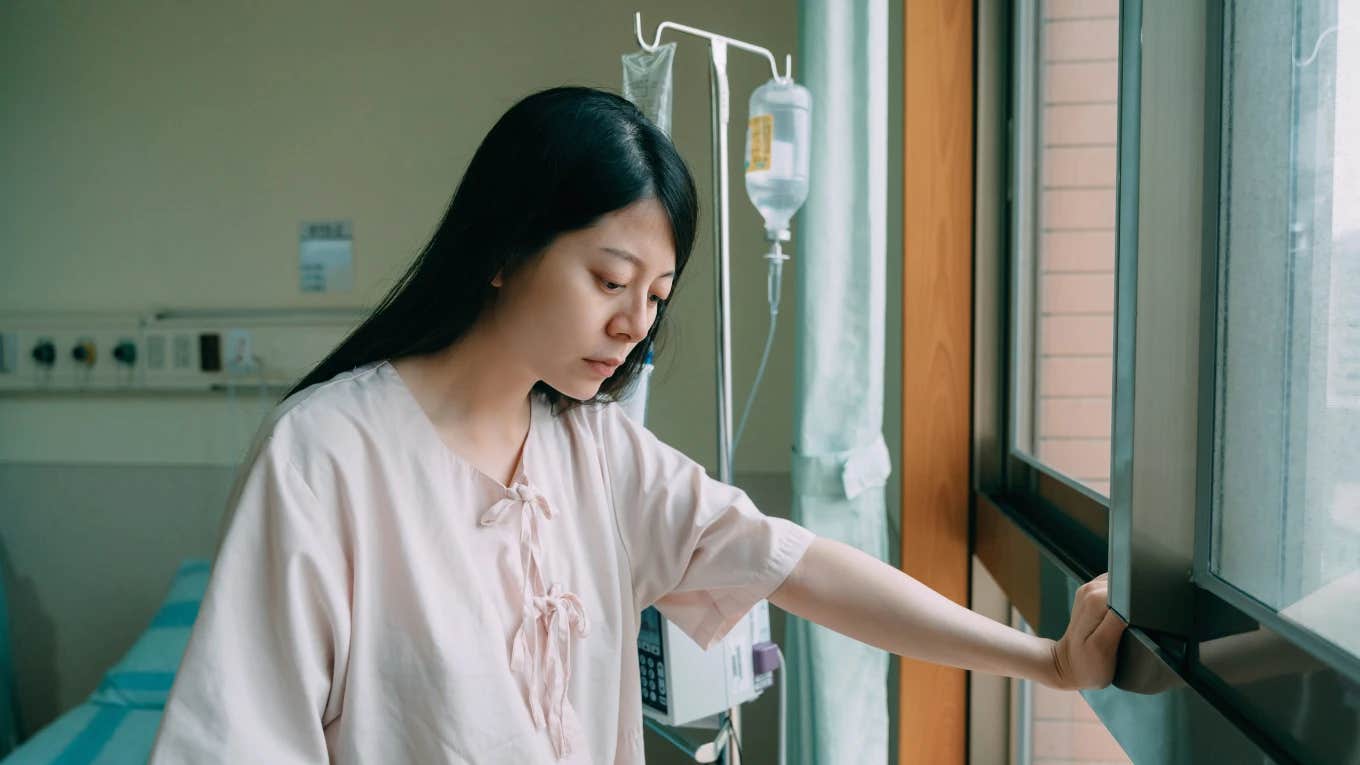Teen Asks If She's 'A Terrible Person' For Refusing To Donate An Organ To Save Her Estranged Sister
What do we actually owe the people in our families?
 PR Image Factory | Canva Pro
PR Image Factory | Canva Pro For a young woman on Reddit, family drama has landed her in an impossible situation. She's caught between the rock of tending to her own needs and self-care and the hard place of potentially saving her estranged sister's life.
The teen refused to donate an organ to her estranged sister and questioned if she's 'a terrible person' because of it.
At first blush, this seems irredeemably callous — especially since this young woman is potentially her sister's only hope.
"My older sister, who’s 23, has been diagnosed with end-stage kidney failure," she wrote in her since-deleted post. "The doctors have told us that a transplant is her only option for survival, and I’m the only match in our family."
That's a common problem — according to the UCLA School of Medicine, the number of patients on organ waiting lists has increased six-fold in the last 30 years. And kidneys are the most commonly needed organ donations, with kidney patients comprising 86% of those on waiting lists, according to the advocacy organization Donate Life.
For many of us, this decision would be a no-brainer, whether we get along with our family members or not. I have a volatile brother with whom I have not had a relationship for more than 15 years. I often explain the situation by saying, "I'd give him a kidney tomorrow, but I don't ever need to see him again."
For some, myself included, something like this crosses a red line where grace trumps conflict. But for this young woman, the situation is far more complicated and has forced her into a situation of choosing between her sister's well-being and her own.
The teen's own doctors have expressed concern about her donating due to her chronic health issues.
This woman's situation is a "double whammy" of sorts. "My sister and I have never been close," she wrote, adding that they've had a "strained relationship" since childhood.
But on top of it, she also has her own health issues, including an autoimmune disorder, that make major surgery a daunting prospect. "My doctors have expressed concerns about the potential complications for my health," she shared.
The situation has left her feeling overwhelmed and caught between dueling senses of duty to her sister and herself. Her family's feelings about the matter have only complicated things further.
 Prostock-studio | Shutterstock
Prostock-studio | Shutterstock
"My sister is understandably upset and has been telling me that if I don’t donate, it proves I don’t care about her," she wrote. Her family is understandably upset as well, and their insistence that her hesitance is "a moral failing" has left her wracked with guilt and confusion.
"I want to be supportive," she said. "I also don’t want to sacrifice my own well-being and mental health for someone who has made my life difficult… Balancing my own well-being with their expectations and my sister’s urgent need is incredibly challenging."
Commenters agreed that she needs to put herself first — and pointed to other lesser-known options for her sister to find a donor.
It's easy to forget in high-stakes situations like this that our primary responsibility is always to care for ourselves first. Many on Reddit pointed out that for precisely this reason, she likely won't be approved to donate in the first place based on her doctors' reservations.
However, even those who have themselves suffered from kidney disease that necessitates life-saving donation agreed that this woman is right to put herself first, in part because her sister has options other than a donation within the family.
One kidney patient highlighted the "paired donation" system, a program in which pairs of donors and recipients who are incompatible are matched with similarly incompatible pairs who then donate to each other.
There are also targeted or directed donation programs, in which someone from this woman's family could donate a kidney to someone else with whom they are compatible, and the sister would essentially move up the waiting list for a healthy kidney.
Whether or not her decision is a "moral failing" is entirely subjective, of course. But if donating potentially endangers her health and there are other options for her sister to pursue, it's hard to fault her for putting her own well-being first.
John Sundholm is a news and entertainment writer who covers pop culture, social justice and human interest topics.

